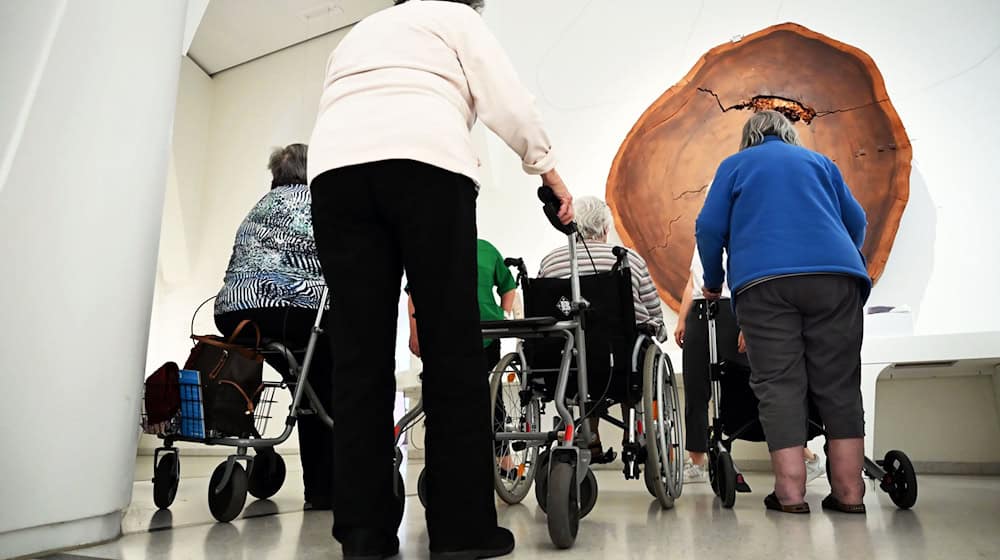Regular visits to museums can improve the well-being and quality of life of people with dementia. This is the conclusion of a project entitled "Erinnerungs_reich - Museen als Medizin für Menschen mit Demenz" (Memory_reich - Museums as Medicine for People with Dementia), which has been funded by an alliance of statutory health insurers (SHI) in Saxony over the past three years.
"The project makes it clear how important it is to create low-threshold services that not only support the sufferers themselves, but also reduce the burden on relatives and improve their quality of life," explained Silke Heinke, Managing Director of the SHI Alliance for Health working group in Saxony.
The aim is to improve the quality of life of those affected
According to the working group, around two million people in Germany are affected by dementia. "There is currently no cure for the disease and medication only has a limited effect. This makes health-promoting measures that improve the quality of life of those affected all the more important," it said.
At the same time, relatives face considerable challenges as they are often confronted with high levels of physical and emotional stress, explained the GKV alliance. Providing constant care can lead to an increased risk to their own health. This is also where the prevention project comes in.
Employees of 33 museums trained as multipliers
For the project, directed by general practitioners from the Technical University and the Dresden State Art Collections, employees in 33 museums were trained and a guide for museum educators was developed. The aim was to create low-threshold offers for dementia patients and their relatives and to examine the health-promoting benefits.
"The project results show that museum visits can have a positive impact on the mental health and emotional well-being of dementia patients. The opportunity to view works of art and activate memories led to more social interactions and improved quality of life," it said.
Problems with participation by dementia sufferers in rural areas
However, problems also emerged during the course of the project. "The goal of reaching dementia sufferers in rural areas in particular could not be achieved to the desired extent," the alliance stated, pointing to a lack of mobility services, for example. In addition, the study did not show any significant relief for family caregivers.
Copyright 2025, dpa (www.dpa.de). All rights reserved










